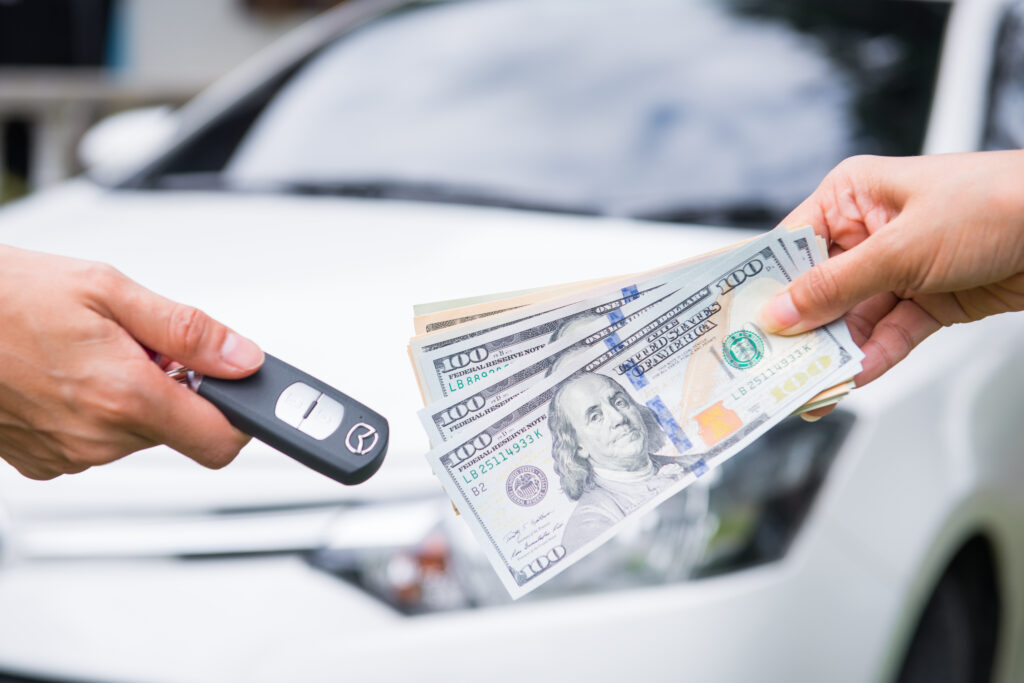Introduction
When it comes to acquiring a new car, you’re often faced with the big question: Should you finance it or pay for it in cash? Both options have their merits, and the choice you make can significantly impact your financial stability and long-term goals. In this article, we will delve into the advantages and disadvantages of both financing and paying cash for a car to help you make an informed decision.

Should I Finance A Car Or Pay Cash: The Advantages of Paying Cash
Financial Freedom
Paying for a car upfront with cash means you own the vehicle outright from day one. This grants you financial freedom and peace of mind, as you won’t have to make monthly payments or worry about interest rates.
No Interest Costs
By paying cash, you avoid accruing interest costs that come with car loans. This has the potential to result in substantial long-term savings.
Full Ownership
You won’t have to deal with lenders or banks, and there are no restrictions on your vehicle. You can modify or sell it whenever you please.
The Benefits of Financing a Car
Low Initial Outlay
Car financing allows you to drive away with a new car without a significant upfront payment. This is particularly advantageous if you want to preserve your savings for other investments.
Build Credit
Financing a car can help you build or improve your credit score. Timely payments on your auto loan can positively impact your credit history.
Budget Management
Monthly installments provide a structured approach to managing your finances. You have a precise monthly payment amount, simplifying the budgeting process.
Factors to Consider
Current Financial Situation
Assess your current financial health. Can you comfortably pay for the car in cash without straining your finances? Or would financing be a more practical option?
Future Goals
Consider your long-term financial goals. Do you have plans that require significant cash reserves, such as buying a home or investing in a business?
Interest Rates
Research current interest rates for car loans and compare them to potential investment returns if you were to invest the cash instead of paying upfront.
Making the Right Choice
Ultimately, the choice between financing and paying cash for a car depends on your unique circumstances. Take the time to weigh the pros and cons of each option and align them with your financial goals.
Understanding Car Financing
Car financing involves borrowing money from a lender, typically a bank or credit union, to purchase a vehicle. The loan is then repaid over a set period, usually in monthly installments that include both the principal amount and interest.

Pros and Cons of Paying Cash
Pros
No interest costs
Immediate ownership
No monthly payments
No impact on credit score
Cons
Depletes cash reserves
Potential missed investment opportunities
Evaluating Your Financial Situation
Evaluate your financial stability and liquidity. Can you comfortably part with a significant sum of cash without affecting your daily life or other financial goals?
Should I Finance A Car Or Pay Cash: Planning for the Future
Consider your long-term financial objectives. If you have ambitious plans, like buying a home or starting a business, preserving cash might be vital.
How Financing Affects Your Budget
Monthly car loan payments should fit seamlessly into your budget. Ensure you have enough income to comfortably cover the expenses.
Car Loan Interest Rates
Interest rates on car loans can vary. Shop around for the best rates and terms to secure a loan that suits your financial situation.
The Impact on Credit Scores
Timely payments on your car loan can boost your credit score. Be sure to understand the implications for your credit history.
Negotiating with Dealerships
When financing a car, don’t hesitate to negotiate interest rates and terms with the dealership or lender. You may be able to secure a more favorable deal.
The Down Payment Dilemma
Take into account the down payment amount within your means. A larger down payment may result in lower monthly payments.
Conclusion
In the debate of whether to finance a car or pay cash, there is no one-size-fits-all answer. Your decision should align with your financial status, future goals, and personal preferences. Make a choice that brings you peace of mind and keeps you on the path to financial success.
Easy read: How Do Travel Credit Cards Work?
Should I Finance A Car Or Pay Cash?
Your financial situation and objectives determine the answer.. Financing allows for low initial payments, while paying cash grants immediate ownership and avoids interest costs.
Does financing a car affect my credit score?
Yes, making timely payments on a car loan can positively impact your credit score.
How do I negotiate interest rates on a car loan?
You can negotiate interest rates with the dealership or lender, especially if you have a strong credit history.
What should I consider when deciding to pay cash for a car?
Consider your current financial health, long-term goals, and potential investment opportunities.
How does the size of the down payment affect car financing?
A larger down payment can lead to lower monthly payments on your car loan.


2 thoughts on “Should I Finance A Car Or Pay Cash: A Comprehensive Guide”